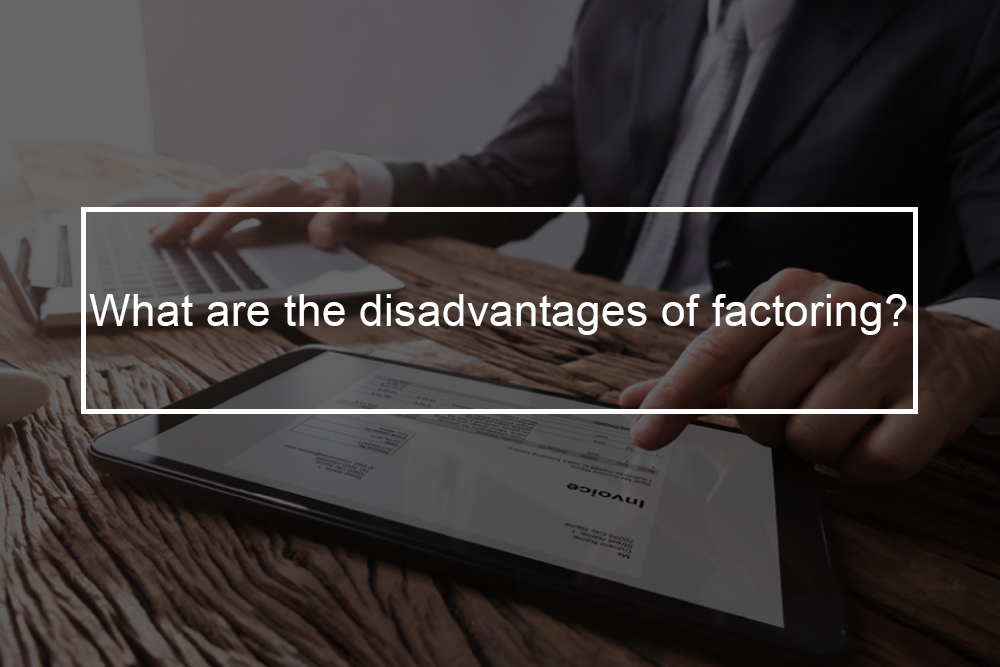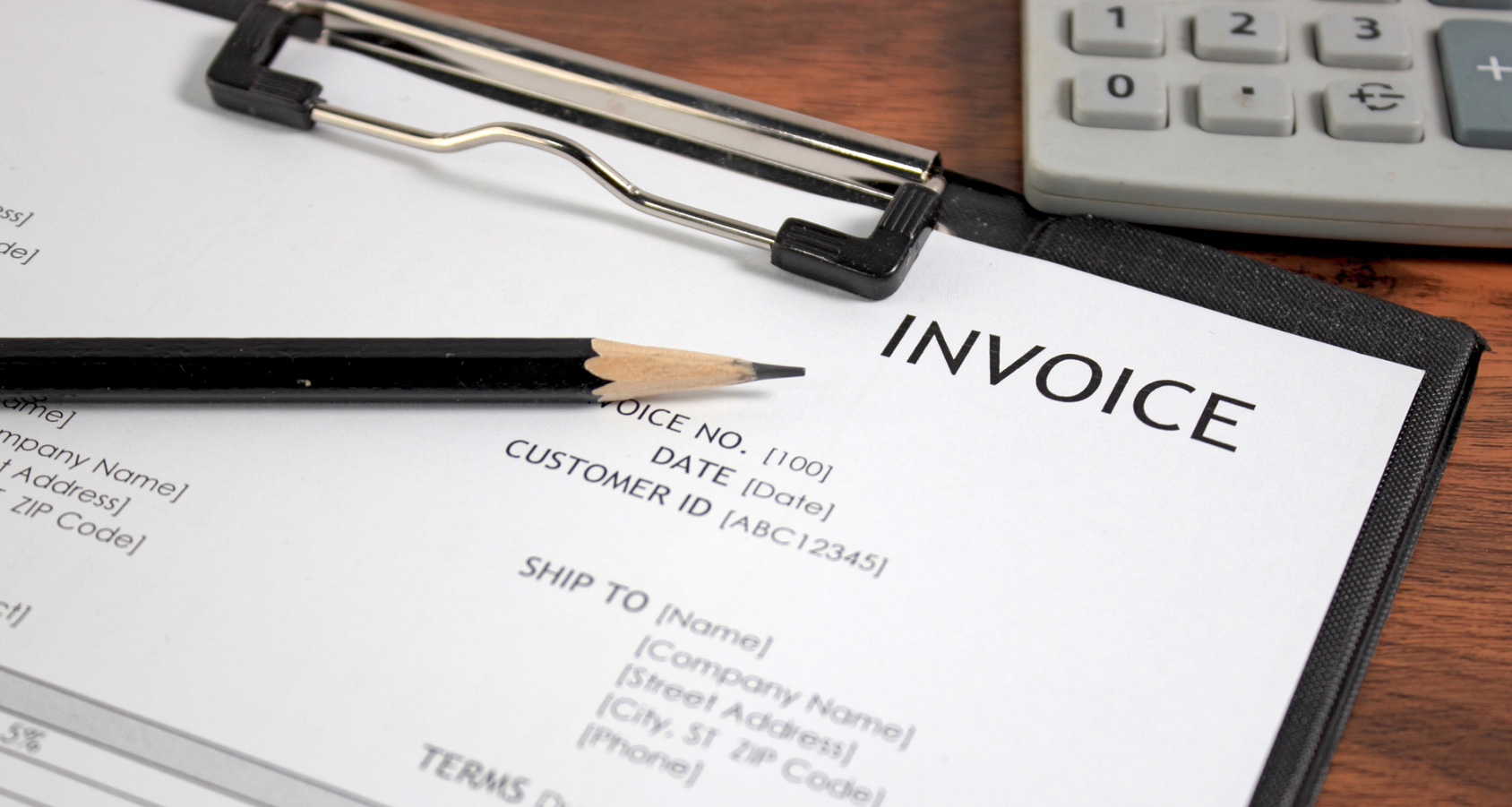In the simplest terms, invoice factoring is selling your business invoice or unpaid debts to a company that will give you the money much faster. This firm that buys your unpaid invoices is referred to as an invoice factoring company. The catch is they take a percentage from your total invoice and, in return paying you instantly, or at least faster than what your customers would have. The aim is that your business will not be forced to wait an outrageous number of days for the clients to pay up. Some businesses allow customers up to 3 months to pay for the products. This can be too long, especially if the business is having cash flow challenges or needs the money for other business activities.
As much as this arrangement can be very beneficial to businesses in need of fast cash, there are some cons the business owner should consider before signing up with an invoice factoring firm. The factoring fees, for example, are you willing to allow your invoices to be deducted by up to 20% to cover for the charges? A deeper look at invoice factoring and how it works is necessary. Today, we discuss the cons of applying for invoice factoring and whether or not it’s worth the trouble, and which is the best way to pick a factoring firm to reduce the downsides.
What are the downsides of invoice factoring?
7 reasons you want to stay away from invoice factoring companies
It is understandable that you want your business to get the money it owes its customers as fast as possible. However, resolving to sign up for invoice factoring services comes with its own operational and financial disadvantages.
The factoring fees
The number one obvious downside of using invoice factoring is the fees charged by the company. This is an issue because you are paying third party money that you don’t have to. The factoring company will ask for 5 percent or less of the total invoice. Therefore, you will be getting 95 percent of your invoice, whereas if you waited, you could have gotten the full 100 percent. Now, of course, the main reason you are considering factoring services is that you cannot wait for extended periods for your customers to settle their debts. So you have to check how pressing and tight the situation is for your business. Are you willing to trade 100% down the road for 95% on the spot?
Factoring companies are not debt collection agencies
Hiring a factoring company does not automatically mean that all your debts will be paid in full. They should not be confused with debt collection agencies that will put in all their time and extra resources into tracking late paring customers and defaulters. Factoring companies do not operate that way, meaning there is a chance your invoice will go unpaid. You, as the business, will take full responsibility for unpaid invoices. You will have to clear the balance with the factoring company and get a lawyer or a debt collection agency to track down the defaulters.
Dependency on customer payment history
A lot of the invoice factoring process depends on your customers’ history with debt payments. The invoice factoring companies have to calculate the risk they will be facing when taking on your invoices. For this, they look at your clients and whether or not they have tendencies of not paying up on time. If your customers regularly delay paying you, then the factoring firm will see this as a sign that they won’t get paid. Therefore, reduce the chances of taking your invoices.
Invoice factoring is not the solution to everything
Yes, invoice factoring helps by offering lines of credit and loans, but it only solves a single problem. That is, it deals with cash flow problems caused by slow-paying customers. This is a one-dimensional solution that should only be used to solve this specific problem.
Granting access to third-party companies
Invoice factoring involves granting complete access and control of your invoices to a third-party firm. This is not desirable, and business owners do not like handing out financial information to another company. Before handing out your business’ financial information, ensure you are comfortable with the factoring company and trust their process and practices. Signing up with a reputable factoring company is the best way to reduce this risk.
Factoring companies contact your clients
This is another privacy issue. Just as companies would not be comfortable with a third party accessing their financial information, they would also not like them to contact their customers. Matters dealing with debt collection can be very sensitive, and your loyal and long-serving customers would not appreciate a third party keeping regular communication concerning the payment.
Invoice factoring can be labor-intensive
The invoice factoring process can be labor-intensive for your business. If you want the factoring services, you need to prepare a schedule of accounts together with a copy of the invoices and other documentation as requested by the specific factoring company.
Is invoice factoring right for your business?
We have talked about the cons of invoice financing. This financial option also has strong pros, making it worth the consideration. So, how do you tell if invoice financing is good for your specific business? Basically, there are three things that will help you tell. First and most important is whether your business is in urgent need of cash. Without cash flow problems, there is practically no sense of getting factoring services.
Secondly, look at your customers. Their history when it comes to paying debts is important. As stated, having customers with poor payment history will scare away the factoring company. Finally, see whether losing around 5 percent of your total invoice is worth it in the grand scheme of things. If all these reasons are in line, then signing up for invoice factoring might be worth it. Remember, there are alternative financing options for your business that you can explore. These include business loans, lines of credit, SBA loans, cash advances, just to name a few.
How to choose a factoring company for the best deal
Getting the best out of factoring companies despite the cons
We have discussed the different cons of signing up with an invoice factoring service. But due to the circumstances your business is in, it might be a good idea after all. So how do you ensure you choose a factoring company that will maximize the pros and reduce the cons? The terms and conditions of factoring companies differ depending on the company and the industry you are in. Therefore, choosing the right factoring firm should be done carefully. When picking an invoice factoring company, consider the following:
Do you require industry-specific factoring services?
Industry factoring companies serve a wide range of industries. However, some industries require factors that are specialized. These specialized industries include construction, transportation, and medical factoring.
What are the rates/fees and terms of the factoring company?
Charges are key in selecting any service. Most factoring services do not have the same fee structure. And like any service, the cheapest ones are not always ideal. Factors that claim to be the cheapest, easiest, and fastest might also not be good for your business. They usually have hidden fees and additional charges such as background check fees, application fees, attorney’s fees, field examination fees, monthly processing fees, UCC filing fees, ACH fees, wire fees, and invoice submission fees.
Usually, factoring rates range from 1% to 5% per month. Some factors advertise very low rates of 1% but have lots of hidden charges. When it comes to factoring advance rates, they range between 70% to 90%. It is usually 80% for non-specialized industries. The advance rate is the percentage of the total invoice you will get right away. Remember not to rush for the cheapest rates as sneaky factoring companies can easily slap you with hidden rates.
Which type of funding is offered, recourse, or non-recourse?
In recourse funding, the business owner is required to take the risk if its clients will be unable to pay the factored invoices. In non-recourse funding, the invoice factoring firm takes all the risk of nonpayment. Here, the business assumes no risk at all. However, since this puts the invoice factoring firm at a disadvantage, less than 20% offer non-recourse services. The few that offer non-recourse have higher fees.
How experienced is the factoring company?
Try looking for a factoring company that has been around for some time, people who know their trade. Plus, go for a factoring company that has experience in your industry or has experience working with businesses like yours. The invoice factoring process might be the same, but there are industries that call for unique services and benefits.
How flexible is the factoring company?
When picking a factoring company, find one that offers flexibility. Some companies ask for a commitment in the form of long-term contracts and have monthly minimums and pre-payment penalties. Furthermore, pick a factoring company that allows you to select which invoices you want to factor. Keep away from terms forcing you to factor all invoices or all invoices from a specific client. Some factoring companies also take over your account receivable. Thus, they will be in charge of sending and collecting all invoices. However, appealing this might sound, most small businesses like to retain this function and sending the invoices themselves. This fosters better customer relations.
How is customer service like?
Getting an invoice factoring company with strong customer service and relation is very important. First, for you, as a business owner, you want a company that will relate well with your business. They should be quick and effective and deliver on their promises. Secondly, good customer service will benefit your clients. Signing up for factoring services means that you are letting them interact directly with your customers. Therefore, they need to be properly mannered and treat your clients as you would. Customer services can easily be determined by checking customer reviews or asking the factoring company for referrals.













